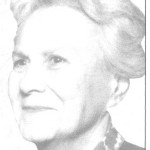Level A1 Higher Beginner
Aries of communication: Work and Professions
Topic: I want to be a firefighter! (Unit 7)
Revision: Grammar: Present Simple — Present Continuous
Functional exponents: I usually walk to school, but today I’m cycling.
Vocabulary: jobs and professions: teacher, baker, driver, farmer, builder, librarian, worker, postman, doctor, policeman, architect, soldier, dancer, singer, sportsman, football player, shop assistant, reporter
Objectives: — to activate the topic-related vocabulary;
- to develop students’ skills in listening, speaking, reading and writing;
- to facilitate students’ free speaking by eliciting personal experience and knowledge;
- to develop students’ emotional sphere, logical thinking and understanding everyday life situations;
- to create cross-cultural competence;
- to teach students safety rules in fire emergency situations.
Equipment: Welcome – 2 Pupil’s Book, CD-Welcome -2 Unit 7, ppt- (Smart-board)
The Procedure of the Lesson
Organization of the class: greeting students, presenting the plan of the lesson
Warming-up activities:
Teacher: Guess the word in the grid. This word is connected with the topic we are studying today. Say the letters of the ABC in turn.
| f | i | r | e | f | i | g | h | t | e | r |
Teacher: Look at the screen and name the profession of the characters.
Phonetic Drills: Jobs and Professions: teacher, baker, driver, farmer, builder, librarian, worker, postman, doctor, policeman, architect, soldier, dancer, singer, sportsman, football player, shop assistant, reporter
Formation of students’ speaking skills:
1) Questions-Answers (Exercise 4, page 45)
What do firefighters usually do?
They usually fight fires.
2) Right-Wrong Statements ( Ex 5, page 45)
A pilot fights fires.
Wrong! A pilot doesn’t fight fires. A pilot flies planes.
3) Making mini-dialogues:
What do you want to be? (Exercise 3, page 45)
I want to be a teacher because I like to teach children at school.
4) Extension: Firefighting
- What do firefighters do?
(- fight fires/put out fires;
-help people and animals;
-save forests;
-save people’s property, buildings, cities…)
- When do firefighters work?
( At days and nights)
- Is this work dangerous/ important/ necessary?
5) Brainstorming technique: What may cause a fire?
Students: children play with matches, with fire, forget to put off the gas stove, make bonfires in the yards and in the forests, bring home explosive substances, make fireworks at home, are careless with firecrackers, etc.
Developing Students’ Speaking skills
T.: What happens when there’s fire in town?
Students:
1. The alarm clock is ringing.
2. The firemen are putting on their protective jackets, high boots and yellow helmets.
3. They are running to the fire engines.
4. The fire engine is running very fast with the loud fire alarm to the spot of the fire.
5. The firemen take a long hose and pour water or foam on the fire.
6. If there some people or animals in the burning house the firemen climb a high ladder into the house and help people and animals down.
 Relaxation: Song: London’s Burning (page 47)
Relaxation: Song: London’s Burning (page 47)
T: Before we sing a song London’s Burning I want you to answer some of my questions:
What is London?
Where is London?
What happened in 1666 in London? What caused the fire?
Song:
London’s burning! London’s burning!
Fire! Fire! Fire! Fire!
Fetch the engine! Fetch the engine!
Pour on water! Pour on water!
 Developing speaking and writing skills: brainstorming students’ ideas about the safety rules not to cause fire.
Developing speaking and writing skills: brainstorming students’ ideas about the safety rules not to cause fire.
1) Don’t play with matches!
2) Don’t play with open fire!
3) Don’t play with firecrackers!
4) Don’t make fireworks!
5) Be careful in the kitchen and don’t forget to put off the gas stove after you cook!
6) Be careful with electric appliances: irons, kettles, microwave ovens, toasters, computers, TV-sets – always pull out the plugs when you leave the house!
7) Don’t bring home explosive substances!
Teacher: Open your exercise-books and write 1-2 safety rules, what must people do not to cause fires! The rest you will finish writing at home)
Developing Listening and Reading Skills: Exercise 2, page 46.
Brushing up Grammar rule: Verb Present Simple – Present Continuous in the structures: usually – today, now. (Exercises 4-5, page 47)
Giving home assignment: read SB pages 46-47; finish writing safety rules not to cause fire.
Summing up





